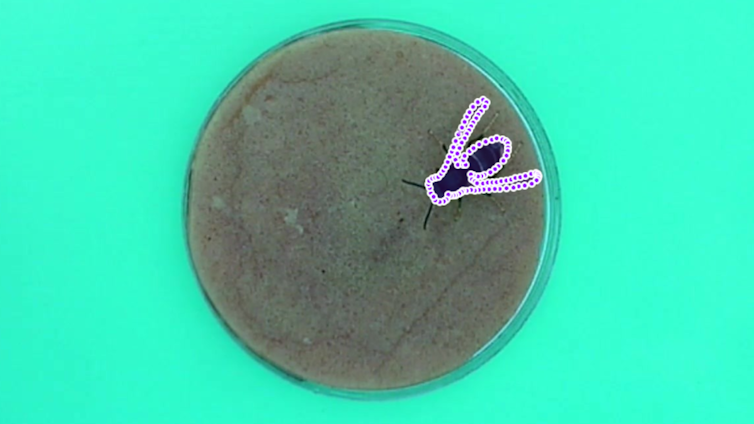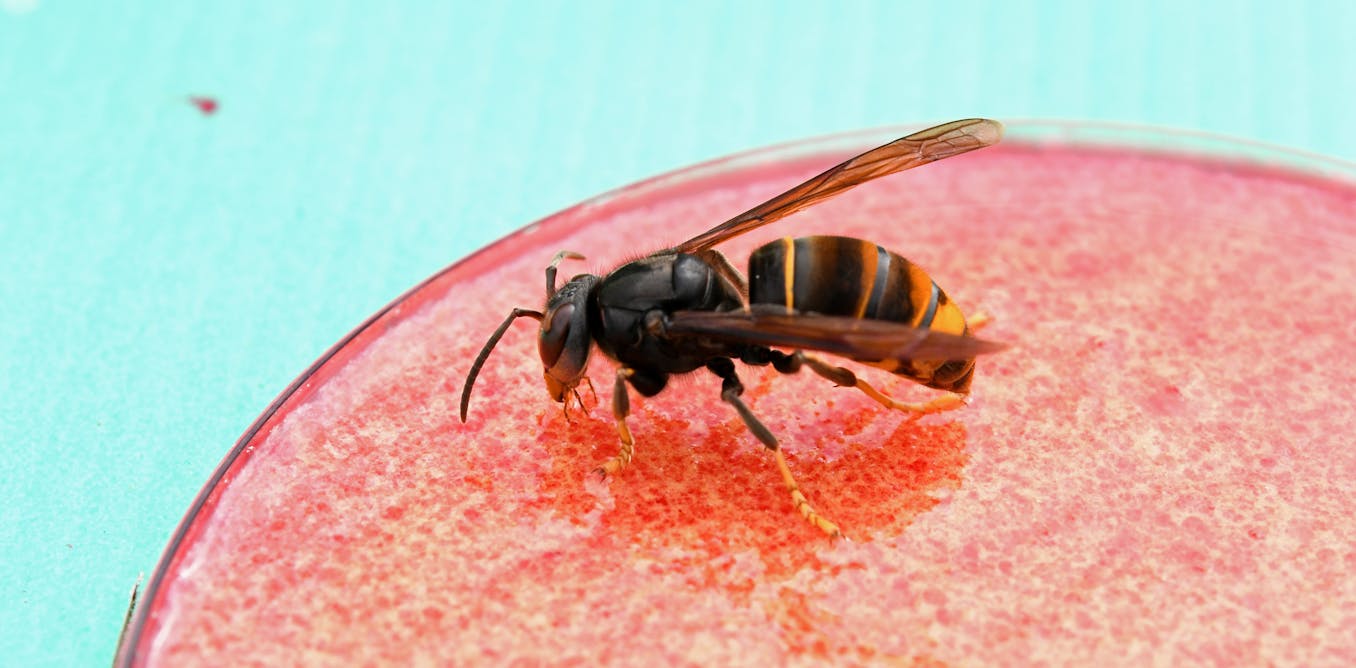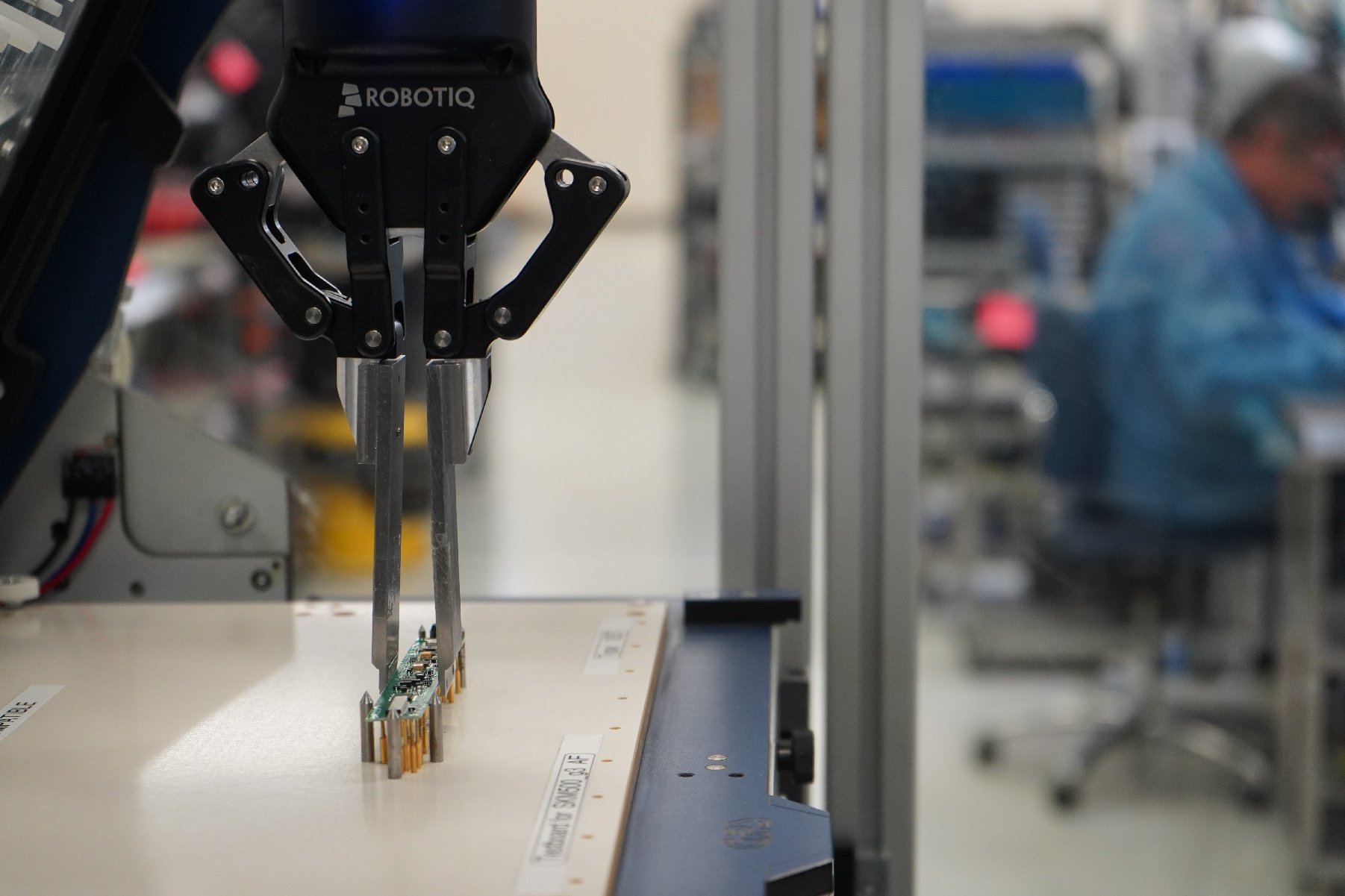The island of Jersey is known for its picturesque scenery and mild climate. However, its proximity to the European continent has placed it in the path of an invasive predator: the Asian hornet, Vespa velutina. This is bad news for the island’s wildlife, but makes Jersey an ideal location for testing new methods to combat the hornets.
Using the island as a testbed, our team of biologists and data scientists have developed an AI system that can automatically detect Asian hornet invasions into new regions, enabling their eradication before they can gain a foothold. The system, VespAI, identifies Asian hornets with over 99% accuracy, as demonstrated by recent results published in the journal Communications Biology.
This early warning system is needed because the Asian hornet – also known as the yellow-legged hornet – is a rapidly spreading threat to biodiversity. Originating from south-east Asia, the species has invaded Europe, east Asia and the US within two decades, preying on honeybees and other important pollinators.
To tackle the issue, VespAI uses deep learning technology, a method of computation inspired by the human brain, to identify Asian hornets visually, capture images and send automated alerts to the beekeeper, landowner or government official using the system.
The setup is simple. A sponge impregnated with hornet attractant – a tasty mix of sugar and fruit extracts – is placed underneath a small camera that takes pictures of visiting insects when they land to feed. These images are then analysed by the system’s AI algorithm, allowing the monitor to identify Asian hornets with near perfect accuracy.
VespAI fulfils an urgent requirement for the UK, as Britain sits on the edge of the hornets’ European invasion front. Asian hornet incursions into the UK began in 2016 and now occur on a yearly basis. While the national eradication strategy has limited the ability of the hornets to fully establish, 2023 was a particularly bad year, with a record 72 nests being discovered.
Peter J. Kennedy, Author provided (no reuse)
In Europe, traditional methods such as baited traps are the first line of defence. But these kill substantial numbers of native insects including many pollinators. Additionally, kill traps do little to meaningfully reduce hornet numbers, as colonies continue to survive unless the queen is destroyed.
By avoiding harm to visiting insects, VespAI provides a crucial advantage over trapping. Also, any Asian hornets detected by the system remain alive, so they can be tracked back to the nest. This is important, as it is the only proven way to destroy colonies.
A key reason for the hornets’ success is the difficulty of detecting their initial invasion into new regions. New colonies start from just a single queen, but can produce hundreds of additional queens within a year, leading to an exponential growth in numbers.
As a consequence of this rapid expansion, hornet populations are often established before or soon after they are noticed by people, making eradication almost impossible. Because early detection of invasions relies on sightings by the public, there is also a high risk of mistaken identity. In the UK, only 0.06% of the thousands of Asian hornet reports submitted annually are correct identifications.
A scalable solution
To test VespAI’s effectiveness, we conducted rigorous field trials on the island of Jersey, where Asian hornet incursions from France are common. Working with the Jersey Asian Hornet Group and the island’s government, we deployed prototype systems in areas where Asian hornets, European hornets and other insects were abundant.
We then painstakingly analysed the thousands of images collected by the prototype systems. We manually checked each one to ensure that the AI algorithm correctly identified all Asian hornets without mistakenly identifying other insects as hornets.

University of Exeter, Author provided (no reuse)
So far, our results have been promising. VespAI correctly detects Asian hornets with more than 99% accuracy, providing a substantial advantage over previous methods. While this technology is still in the developmental phase, our experiments indicate that the system could transform how Asian hornets are managed in at-risk regions such as the UK and US.
Notably, Britain’s first confirmed Asian hornet of 2024 was recorded in March, substantially earlier than usual, and the high numbers of nests in 2023 indicate that this year may be the most difficult to date. Further trials of the VespAI system will take place in the UK over the next few months, as we work with government authorities to bolster eradication efforts at this crucial juncture.

The post “This AI early warning system could limit Asian hornet invasions” by Thomas O’Shea-Wheller, Research Fellow, Biosciences, University of Exeter was published on 04/03/2024 by theconversation.com























